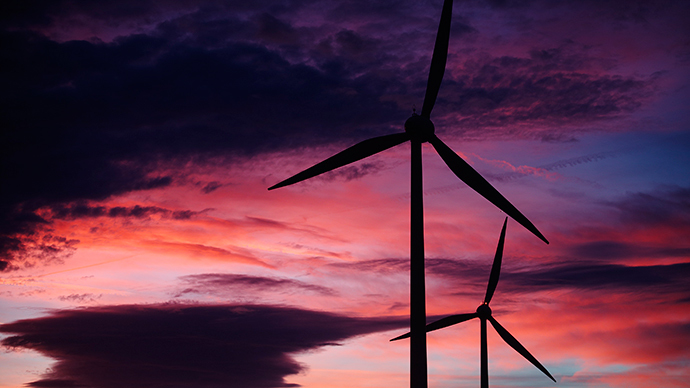Green war games: NATO to test renewable energy for battlefield, humanitarian ops

Being green does not mean peaceful any more as defense companies join NATO in testing renewable power, in particular solar batteries and wind turbines, for battles and humanitarian operations.
Some 1,000 NATO soldiers will spend 12 days in June in Hungary testing smart energy technology like self-contained power grids, solar panels and wind turbines, Bloomberg reports citing Susanne Michaelis, the organization’s action officer for smart energy.
Companies including US unit of French aerospace company Thales SA, Thales Defense & Security, Germany-based Multicon Solar AG and Austria’s Smartflower Energy Technology GmbH are collaborating with the NATO on the project.
Among the technology to be tested are small solar power plants, which open like flowers to the sun within 10 minutes, solar-powered battery chargers and highly insulated tents. All of them should replace traditional fuels delivered via vulnerable supply lines.
According to NATO, the test comes after 3,000 US soldiers were killed or wounded in attacks on water and fuel convoys in Afghanistan and Iraq.
“A lot of people are crippled or die transporting fuel and water. If you attack a fuel truck, it explodes and burns all fuel. There’s no stopping it. If you shoot at solar cells, one may break, but it doesn’t explode and all the other cells will still be working,” Michaelis told Bloomberg.
To test the smart energy equipment, NATO soldiers will simulate power cuts, flooded roads and diesel and water contamination, as part of war-game scenarios.
Big customers from military industry can offer power companies the market which is less dependent on global economy fluctuations than any firm from private sector, according to Michaelis.
By 2025 the US Army plans to install 1 gigawatt of renewable capacity at its bases, Bloomberg says.
To cut the number of supply convoys in the most dangerous missions, NATO commanders want to squeeze the most from energy sources and make them more efficient.
In countries like Afghanistan, NATO spends 5 gallons of fuel to deliver 1 gallon, according to NATO’s assistant secretary-general for emerging security challenges, Sorin Ducaru.












